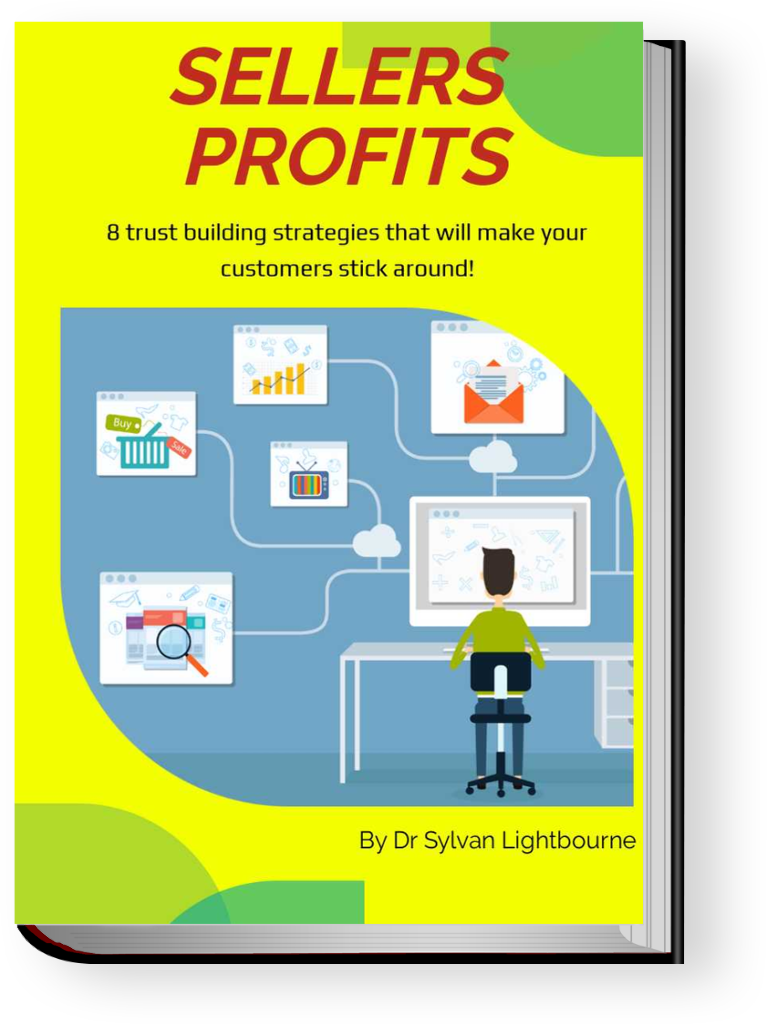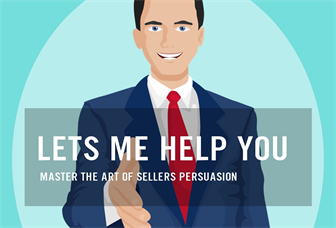
Master The Art Of Sellers Persuasion
SQI Security Entrepreneur Series 30
Basic Tips On Influencing Your Way To Sales Success
CLICK HERE TO DOWNLOAD THIS EBOOK
People who are experts at persuasion tend to be seen as sleazy. However, every day,someone uses tactics of persuasion at one point or another. Persuasion can be used as a way to get a raise, land a promotion, or gain extra vacation time. It is used in regular conversations, like when you have to persuade your kids to eat their broccoli before they get dessert. Persuasion, for some, comes naturally, and for others, it is a skill that they need to develop so they can further their career. For example, entrepreneurs who need to engage in persuasion to succeed in their business have to be able to persuade on demand. The most successful entrepreneurs should be seen as Master Persuaders. The key for any business owner to being able to gain customers and sell products or services is the power of persuasion.
The success of your business is ultimately determined by the number of customers you can persuade to buy from you. By improving your ability to convince people to buy from you, you increase your odds of beating out the competition. To have a successful business, you need to be able to sell your products, ideas, and yourself. You have to persuade customers to say yes to your products, services, and your price point. Before you can sell your products, you have to compromise with your potential customers on your offer. If you want to give a compelling proposition, you have to prevent people from being able to tell you no. Knowing the ins and outs of persuasion can help you accomplish this task.
To get people to say yes, you first need to know what makes them say no. Accomplishing this isn’t rocket science; however, it is neuroscience. Fortunately, you don’t need to break out a textbook to understand and learn the information. It helps if you think of the human brain as though it is operating as an electrical circuit. For you to get people to buy into your business, you have to spark the brain’s circuitry into action. A majority of a buyer’s decision to purchase is initiated by this spark, which in turn, creates a desire for a thing. To get potential buyers to desire what you’re selling, you have to use the power of persuasion.
Activating the power of persuasion will work in every kind of business, whether online or offline, as well as helping you with your regular daily interactions. Utilizing ethical persuasion techniques allows potential customers to feel happy after buying a product or service rather than experiencing buyer’s remorse. When customers experience buyer’s remorse, not only do you lose money, but you could also suffer a loss of loyal fans and receive bad reviews. Start learning everything you need to take yoursales to the next level and learn how to get customers to know, like, and trust you.
Identify the Latest Buying Trends
When it comes to persuading people to buy what you’re selling, there are six powerful sales triggers that you can use in your efforts. Each of the following powerful sales triggers were developed based on extensive study of psychology and human behavior.
Reciprocity
The first powerful sales trigger that you’ll need to gain an understanding of is reciprocity. In business, reciprocity is the idea that if you provide consumers with something that they will feel obligated to give you something in return. This is why you may feel uncomfortable if you owe someone something. This is also why most businesses will start the sales process or by offering you something to drink. In the right situations, this can be an extremely powerful tool. However, it is essential that you understand that it won’t work on those who have an entitlement mentality.
Those who harbor an entitlement mentality naturally expect others to defer to their desires, making any hope of reciprocity a long shot. Unfortunately, when it comes to your potential customers, you won’t be able to tell which ones might have an entitlement mindset. This means that you will need to come up with something that costs you less than its perceived value because you will need to give it out to everyone from the start. By doing this, you will, at the very least, develop a reputation of generosity in your chosen niche, which can often end up being far more valuable in the long run.
Curiosity
Curiosity is a particularly powerful sales tool when it comes to online businesses. This starts with the ability to keep potential customers reading regardless if they are looking at a report, email, blog post, or sales letter. You can build curiosity through an email and inject more information when you feel the content itself could use a little boost. Being able to build anticipation in the introduction is especially useful with reports, blog posts, and newsletters. You merely need to include a hint of what is going to be learned in the process and let their curiosity do the rest.
Another practical approach for using curiosity to persuade the masses is to start or by telling the first part of a compelling story before working the rest of it into the rest of your article. When you keep back parts of the story, it increases the reader’s curiosity and increases the odds that they will at least read through the piece to find the rest of the story. This is why it is vital to break the content up into several chunks; otherwise, the reader will assume that the story conclusion is at the bottom of the page and immediately skip to the end. Whetting the reader’s appetite for what’s coming is a useful tool that works well in any article, report, or sales letter.
Another option you can use is to make potential customers more curious about the product or service you are selling directly. For example, if you are selling a weight loss shake, you can include the following in your article, “You won’t believe how the inches will literally melt away thanks to our patented formula.”

Handling Objectives
Depending on what you’re selling, there is a good chance that even as you are winding up to your pitch, your potential customers are already working out reasons why they shouldn’t listen. It is your job to handle their objections, so you don’t miss out on many sales. One of the most common objections that you will hear is that the price of the product or service is too high, regardless of whether or not they can afford the current cost. This can be easily countered in most cases by demonstrating the additional value that the product brings to the table compared to the cheaper products of your competition.
If you have a specific reason behind the cost, then explaining why the price is higher than the competition is a valid tactic for overcoming this objection. If you’re dealing with luxury products, you will hear the excuse, “I really can’t afford it right now,” or “I really shouldn’t,” or some other variation of the phrase. When this excuse is used, a potential customer isn’t saying that the product is too expensive, but that they have reservations about spending the money here, rather than elsewhere. To overcome this kind of objection, you want to add urgency to the sale, cementing the idea that if they don’t buy now, they will never have another opportunity like it. While knowing common objections and how to get around them is useful, it is even more helpful to sit down and take a look at what you are selling through the eye of the customer and brainstorm a list of every possible objection that might arise.
Credibility
There was a time in the distant past where every transaction a customer had with a salesperson wasn’t thoroughly coated in a shield of distrust. Consumers have become so used to being told partial truths and fabrications that in order for you to penetrate that shield of distrust you are going to have to do something to prove your credibility from the start. This means that you will need to provide them with a strong reason to believe you over the competition. You need to give potential customers a valid reason why you are the most qualified person to sell them your product or service. This can be experienced in a given field, specific results from the product or service you are selling, an impressive degree, awards that you’ve received from well-known groups, or anything that will break down the wall of disbelief enough to let your other efforts start to work.

CLICK HERE TO DOWNLOAD THIS PRESENTATION BONUS
The Power of FEAR
When it comes to motivating people to do something without thinking through the consequences of their choice, there are few better options than fear. Playing on people’s fears has been done for ages by everyone, including corporations, politicians, bosses, and even your parents. They all use fear to generate the desired action because it is easy to find a fear that resonates with a large group of people. When done correctly, playing on people’s concerns can be extremely useful. When it comes to using fear to increase business sales, the kind of fear that you should be aiming to tap into is known as the fear of missing out. This concept usually describes those who are continually looking at their phones for fear of missing out on something better that is going on somewhere without them. With business, it applies to those who can’t bear the thought of missing out on a good deal regardless of what the specifics surrounding the deal turn out to be. Depending on the product or service that you are selling, you may also find success when it comes to reminding people of their fears. One of the most obvious examples of this type of this is insurance company advertisements. Insurance companies are great at showing the real cost of a catastrophic event before showing the viewer how great the insurance company can make things in the end. While this is an extreme example, a wide variety of products and services can play into this type of fear-based marketing in one way or another.
Interested in reading more please click below the ebook front cover below to access the full version of this ebook.

